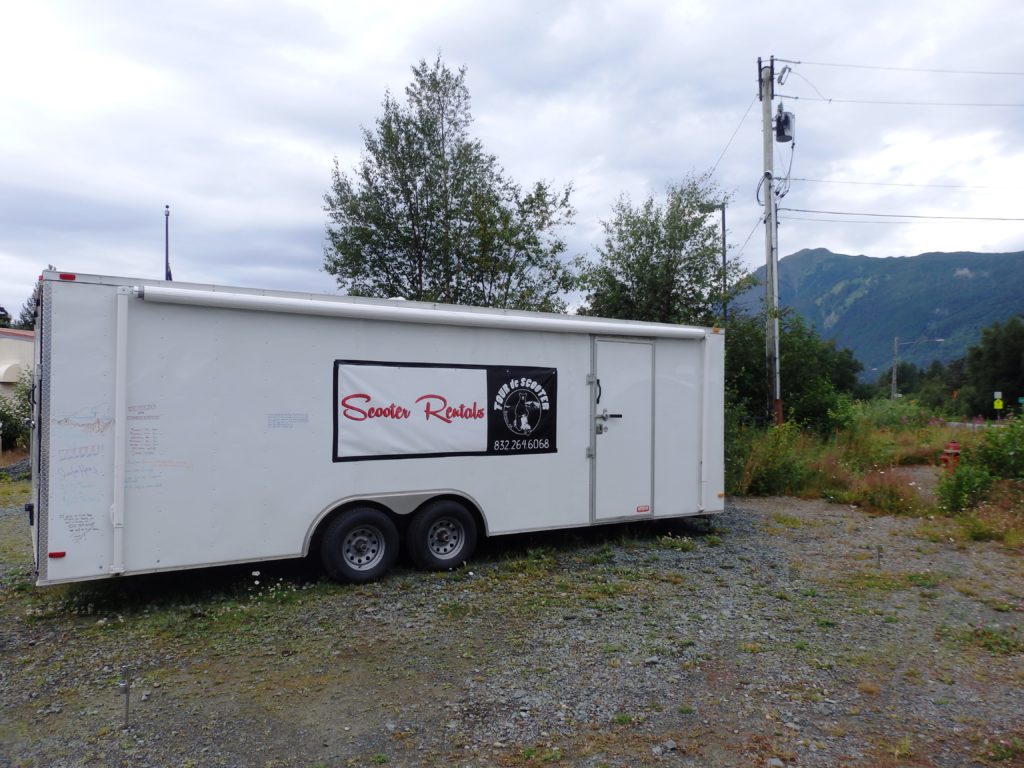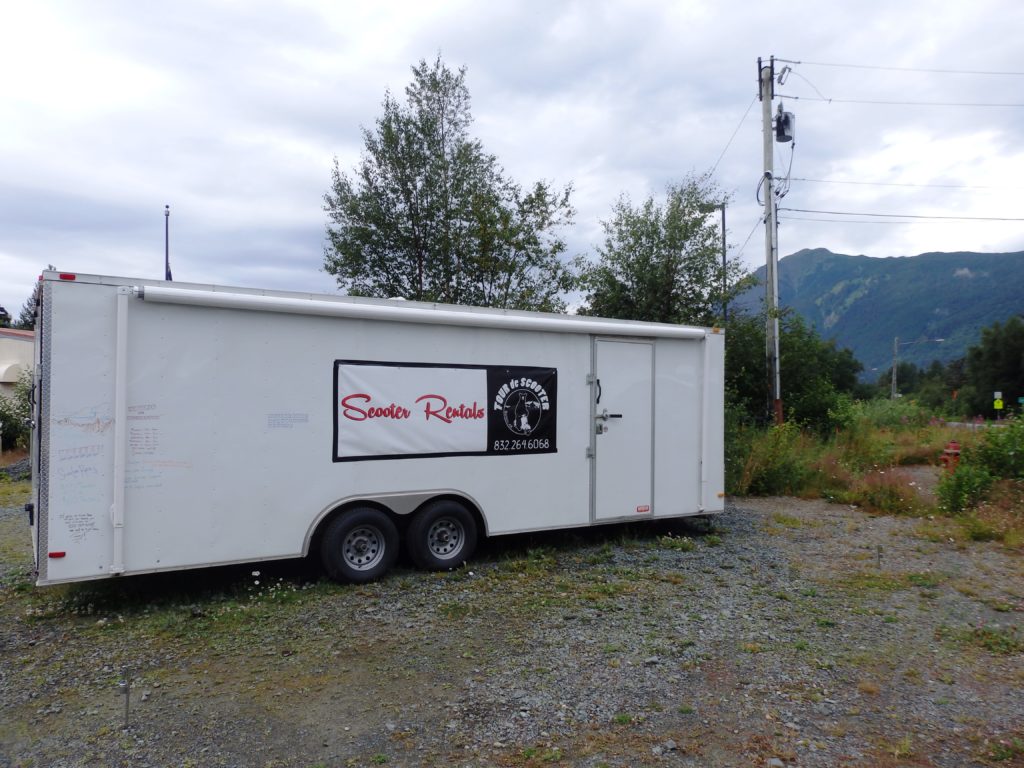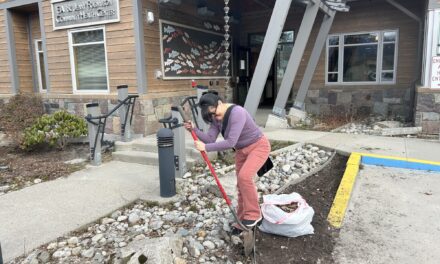
A scooter rental trailer is one mobile business that has opened in recent years in Haines. (Emily Files)
A new committee focused on how to regulate mobile businesses in Haines met for the second time Monday. Only two members were present, and they were taken to task by a couple residents who say the rules the committee plans to draw up could stifle economic growth.
Committee members Diana Lapham and Nelle Jurgeleit-Greene started the meeting with a list of potential regulations Jurgeleit-Green compiled from other communities’ codes. One included requiring a food trailer permit, which would be in addition to the state and borough business licenses already mandated.
“I think that should be open for discussion with more people present — the advantages for the short-term [businesses] versus the brick-and-mortar who are paying fees every month, year-round,” Jurgeleit-Greene said.
Local business owner Doug Olerud balked at the list of potential restrictions.
“I don’t think just because a business has wheels under it means it should be treated differently than my business that has a concrete foundation,” he said. “It’s a business that’s generating sales tax revenue for the Haines Borough.”
Committee member Lapham explained that in the past few years, food carts and other mobile businesses have been permitted simply because there’s not much to go on in Borough Code.
“Right now our code is so vague in the guideline of our administration to implement the rules, whatever rules that there are,” Lapham said. “And even to the person who’s trying to start a business it’s very vague.”
Olerud suggested just two areas the committee should explore for the new guidelines: the number of mobile businesses that should be permitted, and the zones in which they should be allowed. Olerud said any other guidelines could be determined on a case-by-case basis and included in the lease the business owner signs with the property owner.
Jurgeleit-Greene, who owns a shop in the Fort Seward area, said she was still concerned with keeping a physical distance between mobile and brick-and-mortar businesses.
“Because it is hard enough to stay open year round here for some of these businesses, and I think we have a responsibility to that, I really do,” she said.
But Olerud said making additional rules for one type of business and not the other is ‘overreach.’
“And that’s trying to protect somebody who has a brick-and-mortar business at the expense of someone that’s just trying to start off,” he said. “And there’s a bunch of advantages already for an existing business as opposed to one starting off. And I think we should be encouraging more businesses to start in Haines, not less.”
The owner of a scooter rental trailer which opened last summer also spoke up. Alex Stock said people who operate commercial trailers may plan to move into a brick-and-mortar spaces eventually.
“I would love to do that,” Stock said. “I mean, a trailer is just a beginning for me. I could only afford a trailer, that’s how my businesses starts. I take out a business loan, I go buy a trailer, I buy scooters, I come up, I get the proper licenses, I start a business. I make a profit. And in two, three years down the road I have enough profit to buy a piece of land, to build brick-and-mortar. That’s how business starts, that’s how business grows.”
Committee member Lapham agreed.
“I want to make it as easy as possible for these things to get started,” she said.
Mayor Jan Hill closed the meeting by saying that the mantra of the committee should be ‘less is more’ when it comes to regulations for mobile businesses.









